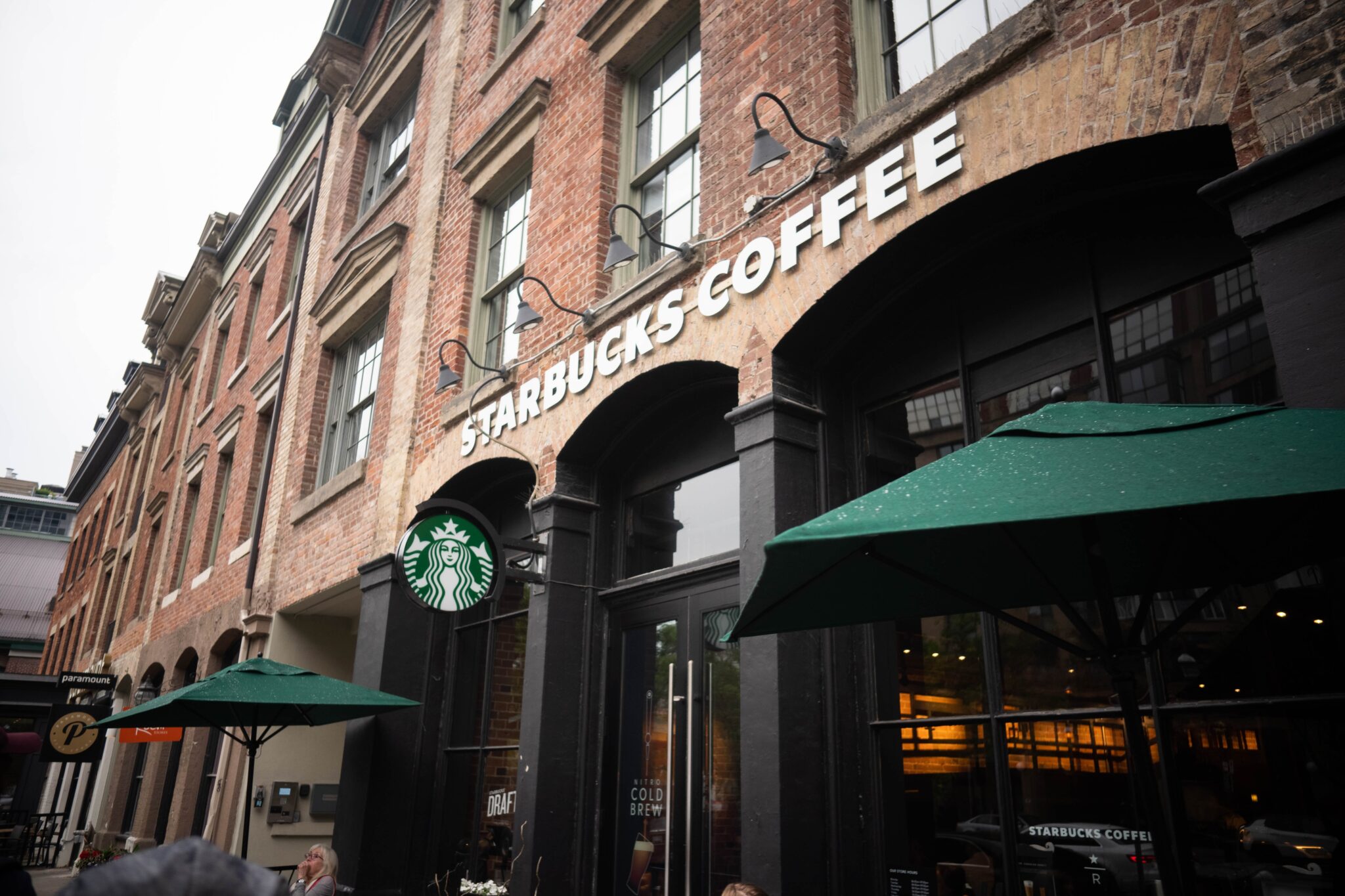
Gilbert Placeres is a student at Harvard Law School.
In today’s news and commentary, Starbucks challenges the constitutionality of the NLRB, Swedish economists debate Tesla’s anti-collective bargaining stance, and Gina Carano alleges Disney and Lucasfilm illegally retaliated against her for voicing her political views when they fired her from “The Mandalorian.”
Starbucks has joined SpaceX, Trader Joe’s, and Amazon as prominent employers who are responding to charges of labor law violations by challenging the constitutionality of the National Labor Relations Board. The coffee giant made these arguments at the end of a February 17 brief in an ongoing case involving four Phoenix-area stores. It argues that (1) the NLRB’s structure violates separation of powers by mixing executive and judicial functions and limiting presidential removal of Board members as well as that (2) administrative law judges within the NLRB are excessively insulated from Presidential removal. Starbucks did not expound much on these arguments – they make up only about one page of the nearly 200-page brief. Starbucks Workers United lambasted this position from their employer, saying that the company has “aligned itself with billionaire class union busters” to push “an extreme and radical position to attack the agency that’s holding it accountable for its historic lawbreaking.”
These arguments are some of the same ones made by SpaceX, Trader Joe’s and Amazon, as John has written. He will continue covering these arguments in our Tracking Attacks on the NLRB series.
In the Wall Street Journal, German Bender responded to Lars Jonung’s arguments that Tesla CEO Elon Musk’s refusal to bargain with Swedish unions is a welcome challenge to the power of labor there and could reinvigorate liberal freedoms, particularly a right of individual contracting. Bender writes that, actually, Swedes support the Tesla workers’ strike by a three-to-one ratio, Sweden has one of the most peaceful labor markets in Europe, and its system of coordinated wage bargaining has benefitted workers while also boosting competitiveness. He argues that “You can have the cake and eat it too. Sweden is one of the world’s least unequal countries but is also regularly ranked among the world’s most innovative, competitive and economically free nations (often beating the U.S. by wide margins).” If Musk wants to do business in Sweden he should adapt to its rules and norms, Bender concludes.
Lastly, actress Gina Carano has filed suit against The Walt Disney Co. and Lucasfilm over her 2021 firing from the hit series “The Mandalorian.” She claims that she was wrongfully terminated for social media posts voicing her conservative political views, presenting “an implicit warning” that “the expression of views departing from liberal perspectives” would not be tolerated in Hollywood. Unlike federal law, California’s Labor Code explicitly protects employee political activity outside the workplace from employer retaliation. Among other controversial posts some saw as antisemitic and transphobic, Carano had shared a post likening the treatment of American conservatives to that of Jews in Nazi Germany. She rejects that her posts were ever hateful or denigrating towards any group. In addition to wrongful discharge and refusal to hire (she says she was set to star in a spinoff series titled “Rangers of the New Republic”), Carano claims sex discrimination because her co-stars Pedro Pascal and Mark Hamill were not retaliated against for voicing their liberal views. The federal lawsuit is funded by Elon Musk, who in August posted an open offer to cover the legal bills of employees retaliated against for their activity on the social media platform X.






Daily News & Commentary
Start your day with our roundup of the latest labor developments. See all
February 27
The Ninth Circuit allows Trump to dismantle certain government unions based on national security concerns; and the DOL set to focus enforcement on firms with “outsized market power.”
February 26
Workplace AI regulations proposed in Michigan; en banc D.C. Circuit hears oral argument in CFPB case; white police officers sue Philadelphia over DEI policy.
February 25
OSHA workplace inspections significantly drop in 2025; the Court denies a petition for certiorari to review a Minnesota law banning mandatory anti-union meetings at work; and the Court declines two petitions to determine whether Air Force service members should receive backpay as a result of religious challenges to the now-revoked COVID-19 vaccine mandate.
February 24
In today’s news and commentary, the NLRB uses the Obama-era Browning-Ferris standard, a fired National Park ranger sues the Department of Interior and the National Park Service, the NLRB closes out Amazon’s labor dispute on Staten Island, and OIRA signals changes to the Biden-era independent contractor rule. The NLRB ruled that Browning-Ferris Industries jointly employed […]
February 23
In today’s news and commentary, the Trump administration proposes a rule limiting employment authorization for asylum seekers and Matt Bruenig introduces a new LLM tool analyzing employer rules under Stericycle. Law360 reports that the Trump administration proposed a rule on Friday that would change the employment authorization process for asylum seekers. Under the proposed rule, […]
February 22
A petition for certiorari in Bivens v. Zep, New York nurses end their historic six-week-strike, and Professor Block argues for just cause protections in New York City.